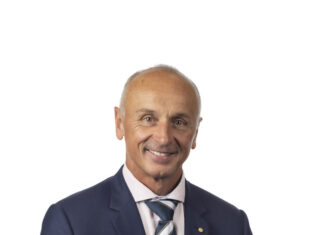HARD rubbish collections would be a “financially unviable” failure in dealing with illegal dumping, according to a Geelong councillor.
Environment and sustainability portfolio holder Andy Richards said a “full-blown” collection across the municipality would cost “several million dollars” but residents would still continue dumping rubbish.
Cr Richards said cleaning up illegal dumps would be “more financially viable”.
Council had already spent $350,000 this financial year cleaning up dumped household goods, he revealed.
Cr Richards said Victorian councils providing hard rubbish collection services still had issues with illegal dumping.
“High tip fees” from a State Government landfill levy and “people’s laziness” were responsible for the dumping, he said.
“The State Government shows no signs of reducing the landfill levy on tips fees and it’s currently half of what you pay at the gate.
“The public should be asking their State Government representatives what they’re getting back in Geelong and the Bellarine community for the millions of dollars of landfill levy that goes up to Spring St each year.”
Cr Richards said waste management was a “key part” of discussions among councillors, with the issue set to go on the agenda of a May meeting in council chambers .
Geelong Residents and Ratepayers’ Association president Andrew Senia called on council to produce “hard evidence” that the collections were unviable.
Mr Senia said he was unconvinced and called for an independent panel to assess potential solutions and their costs.
“I’ve got the highest respect for Cr Richards but he’s not an accountant,” he said.
Mr Senia said council should discuss the issue “much sooner” than May and present its initial findings “openly”.
“It’s a long time to wait for discussions about such an important community issue,” he said.
Introduction of a hard-rubbish collection service emerged as a major issue for residents during October’s council elections.
Recent illegal dumpings have renewed calls for the service, which City of Greater Geelong has run once since its formation in 1993 municipal amalgamations.
Collections unviable: Councillor dashes hard-rubbish hopes
Digital Edition
Subscribe
Get an all ACCESS PASS to the News and your Digital Edition with an online subscription
Mayor raises school bus concerns
Geelong’s mayor has called on the state government to address a “systemic failure” in ensuring the region's students are able to safely travel to...








